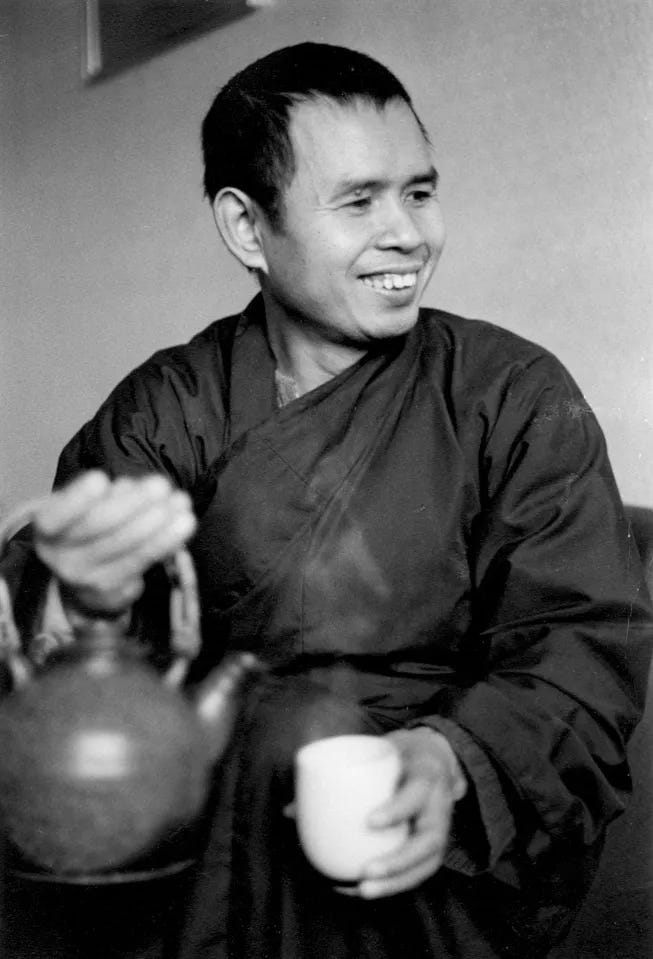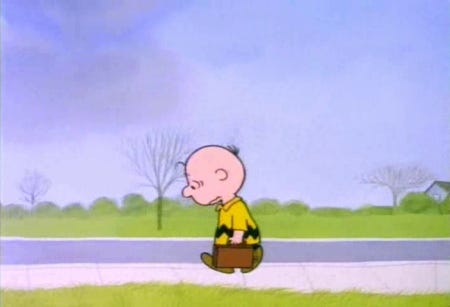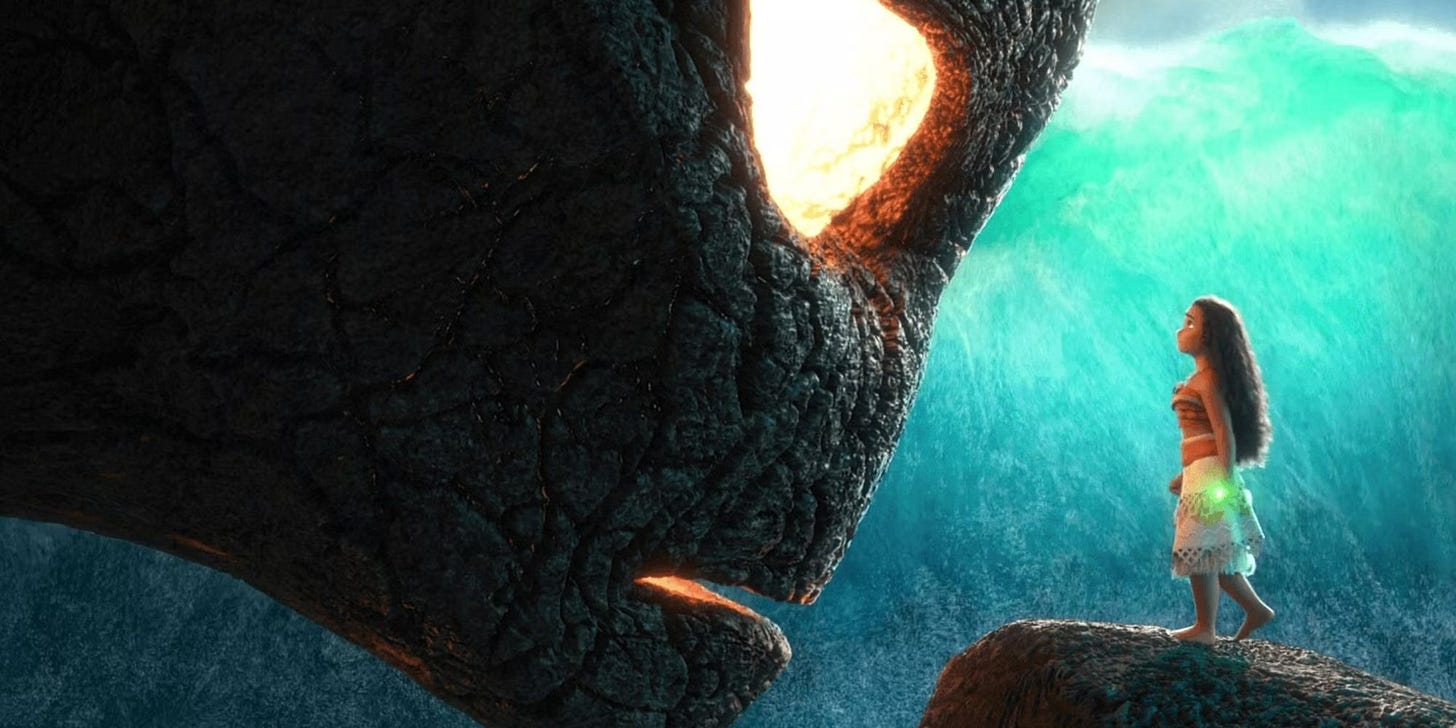How I keep myself from punching the wall when my daughter won’t brush her teeth
hint: it's not a parenting hack
It’s bedtime again and my 9-year-old daughter, Lulu, is doing anything but brushing her teeth. She’s curled up comfortably on her bedroom carpet reading a book in which different animals are pitted against each other and you flip through to learn who wins and how. Alligator vs python. Wolverine vs. Tasmanian Devil. Killer Whale vs. Great White Shark.
I stand in the doorway and say, “Time to brush your teeth, Lulu.” No response.
She flips the page without acknowledging my presence or offering any indication that I have spoken actual words aloud into the air.
Heat rises in my chest. I raise my voice a few notches and say, “You need to be asleep at 8:45 so you need to start brushing now. Remember we talked about just getting it done and not stalling?”
No response.
“Is this thing on?” I say with a smile, tapping an invisible mic, feeling brittle inside.
Again, nothing.
“Come on, Lulu, it’s 8:32 now. Time to brush your teeth.”
She lifts her eyes casually and says “In a minute. I need to finish this chapter.”
This is not ok. I know she’s had a long day but so have I. “Ok, I’m setting a timer for 3 minutes and then you need to be in the bathroom,” raising my eyebrows.
I set a timer, sigh, and walk around the corner to the bathroom. My shoulders slump like Charlie Brown’s when Lucy has dealt out another sick burn.
I’m so tired that I need to sit on the toilet seat while I wait for her to come into the bathroom. I just want to brush my own teeth, lie down on my bed, read a bit, and sleep.
From my lowly perch on the toilet, I call out, “Lulu it’s time to brush your teeth! It’s 8:36!”
Silence.
I admire my daughter’s strength and self-possession. I appreciate how she asserts her will in many situations in which I would have been polite and agreeable at her age. But when I’ve been clear and patient and she is still ignoring me, rage warms my limbs and prickles my fingertips. I’m gritting my teeth to stifle a yell.
I take a deep breath to slow my gathering rage, but my exhale is clipped. If I open my mouth now, it will come out like a bullhorn (“WHY CAN’T YOU JUST GET IN HERE NOW?”).
The anger chokes my throat. I breathe again, still clipped.
I remember she’s interested in this power dynamic and is waiting for me to take my cue in the Battle Royale: Python vs. Alligator. Will she deal a lethal blow with her fangs, then digest me whole? I already feel like a discarded python skin, lying desiccated on the ground.
Sometimes I feel like she wants to see me suffer and be worn to a nub before she’ll acknowledge my presence. I think she does this not because she’s cruel, but because she wants me to stay longer and she knows the more she draws it out, the later she can stay up.
I don’t know exactly what is going on in her head, though. I assume, but I don’t really know. She is her own maddeningly mysterious being. Buoyant, smart, creative, kind, tough as nails. She seems to enjoy fighting. She has an intuitive understanding of leverage and how, at the end of a day, I’ve got none of it left—no treats or offers of a few more minutes of a show with which to lure her.
(Parenting experts, please don't give me your strategies. I’ve tried them all).
I consider going back in and giving her a threat about what will happen if she doesn’t get moving, but I can’t even think of a decent threat.
The rage is electric in my arms—if I don’t walk away, I might slam my hand into the wall. If I do that, I might scare her or actually hurt myself. I might dissolve into a thousand tiny pieces of volcanic ash and never come back together again.
I get up and walk down the hall, trying to breathe. I exhale loudly to try to calm myself faster.
I need to really breathe. I try but my chest is filled with cement. My breaths are short.
Get some space, I say in my head. I walk down the hall.
My mind darts to some lines I read this morning from Zen Buddhist monk and peace activist Thich Nhat Hanh: “If you are really here, something else will also be here: the presence of the other.” He goes on to say, “To be loved is to be recognized as existing. Have you looked at others in this way?”
I scoff inside. Did you have a 9 year old with a steel will standing between you and bedtime, Thich Nhat Hanh? But I know Hanh tended wounded children while bombs were falling around him in Vietnam. He was really there in the worst possible circumstances. My mundane suffering is flimsy and privileged compared to his and so many others. And, it is still real.

Thinking about Thich Nhat Hahn’s soft, measured voice calms me enough to remember that meeting anger with anger never works. I can’t go back in there yet even though the clock is ticking. I can’t go back in there when all I have in my head are the reasons I’m right. I can’t keep engaging in the fight as Lulu has set the terms—a fight at which we will all lose (her in tears, me storming out, or her with clean teeth perhaps but feeling distant and riled up and unable to sleep, crawling into my bed at 9:30 sad and needing to connect).
I realize I should probably try the cringe-inducing but surprisingly effective strategy of embracing my anger.
If you’ve never tried this before, this is probably the point when you’re like, Nope, Emily, this is too hippy dippy for me. But stay with me.
I visualize my anger. A hard burning knot in my chest. A heavy impenetrable weight.
Do you remember the scene at the end of Moana when the ocean parts and Moana strides confidently toward Te Kā, the fiery lava monster? She says to Te Kā, “This is not who you are” and bends her head toward the monster in a tender gesture. This is basically what this practice entails, if I am Moana and also Te Kā.
I breathe in and visualize the burning knot of anger in my chest, place my hand on my chest, and in my head, imagine smiling at it. I hold my hand to my chest where I feel the thickest rage knot, and imagine saying to that spot like I might say to a dear friend, “It’s ok. You’re ok. You can let go now.”
The first bunch of times I heard this, I thought, “Ha! Sure. That will totally work,” sarcasm dripping from every syllable. Then, I tried it and it actually helped.
Every time I do it, I feel a releasing sensation, not a transcendently perfect one, but something tangibly different. Like bolts loosening a turn or two. And that little bit goes a long way toward letting me see what is actually happening so I can find a way forward.
I breathe in and out again and remember what it felt like to sit on the couch this morning, my bare feet pressing into the floor, my hands resting lightly on my thighs. I try to remember that space beyond thought, beyond anger. The field inside me where a light wind blows and I’m surrounded by a feeling of peace. I’m not there, but I can sense it not far off.
I breathe in and out a few more times, then walk back to Lulu’s room and lie down on the bed. By now it’s 8:46.
“So, which Bleachers song is your current favorite?” I ask.
She lifts her eyes from her book and furrows her brow. “Probably Tiny Moves, but I’m not sure. Maybe Reckless. I can’t get Reckless out of my head!”
I grab my phone and say, “Why don’t we play it while you brush your teeth?”
She brushes her teeth to the tune of “Reckless,” stalling at intervals to draw it out, of course. She stalls with turning out the light and getting into bed, needing to show me her metal Pokémon cards and have me hold them and see how heavy they are. I resist, relent, look at one, say “Let’s do this tomorrow, it’s time for bed now.” Soon, I’m singing “This Little Light of Mine,” then drifting out of her dark room, brushing my own teeth, and lying in my own bed.
This is not a parenting hack; this is a spiritual practice. People will surely tell me I’m doing it wrong, or will equate it with “gentle parenting,” the butt of most parenting jokes these days. But anyone who parents or cares for another creature knows that caregiving is a spiritual practice, one that is no less challenging than the aesthetic hermit sitting atop a pillar for 37 years.
As Hanh says, “To be loved is to be recognized as existing.” What is harder than true recognition in the midst of the rush of life?
My parenting life is full of lessons I keep having to re-learn but can’t seem to make easy. It’s always hard.
The anger in me needed to be recognized, as did my daughter’s assertion of her will and her desire for me to stay. If I could recognize my anger, I could recognize my daughter, too.
PS: As I’ve been writing and revising this essay over the last week, thinking about the power of compassion and defusing anger with love on this micro scale in my own home, ICE has increased raids in and around Los Angeles. Just days ago, they detained a nine-year-old boy and his father in Torrance (a neighborhood just a few minutes from where we live). They separated them and sent them to different detention facilities. The only place any nine year-old should be is at home with his family, or at school or soccer practice.
wrote a moving piece that speaks to this larger moment that I’ll share here: “If you need guns, tanks and propaganda to keep us from caring for our neighbors, you've already lost.” His writing at The White Pages has been required reading for me for awhile now.Here are two organizations doing good work to help immigrants right now: CHIRLA and Immigrant Defenders Law Center.
What do you make of this essay? What helps you process your anger and not act out in ways you might regret? What helps you when you’re stuck in a difficult dynamic with someone you love and/or care for? I’d love to know.
🌱 Be Where You Are is 100% reader-supported. You can support this work by becoming a paid subscriber for 5$ a month or make a one-time donation here if you value this work but can’t subscribe. Or, just like this post, add a comment, or send it to a friend! Every little thing matters more than you know. 🙏🏼🩵
Be Where You Are is a newsletter about how to use writing and mindfulness to live more fully where you are. To reply to this newsletter, just hit reply. I’d love to hear from you! I respond to every comment and email. You can also find me on Instagram/Facebook/Bluesky or find more info at my website.





You gave written so many wonderful essays, Emily, but this one is a WOW. It's moving and grounded and so real. I love how you take this "everyday" challenging moment and push it into a larger, deeper, spiritual realm that then touches on the anger (and the necessary, difficult response of tenderness) in our sad, chaotic, cruel world. Perfectly written and balanced. This essay was a gift this morning. ❤️
I so appreciate you writing this. There are certain parenting moments that just seem like a specially-targeted pressure cooker of forces, and it’s so hard to parse them out and feel them, especially when you’re already exhausted/depleted, and then deal from a place of compassion for yourself and others. It’s a spiritual practice for sure. I hope it brings you some comfort for me to tell you that I see you and I definitely feel this too. 💙